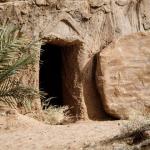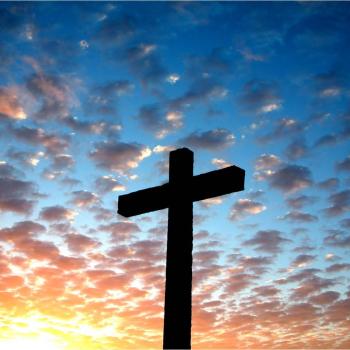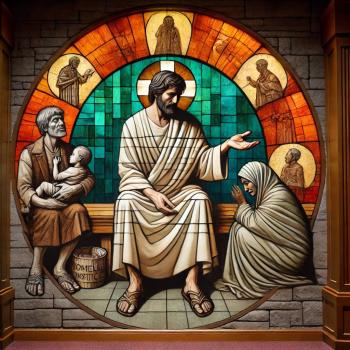Notes for a sermon…
Spring Cleaning
John 2:13-22
2:13 The Passover of the Jews was near, and Jesus went up to Jerusalem. In the temple he found people selling cattle, sheep, and doves, and the money changers seated at their tables.
2:15 Making a whip of cords, he drove all of them out of the temple, both the sheep and the cattle. He also poured out the coins of the money changers and overturned their tables.
2:16 He told those who were selling the doves, “Take these things out of here! Stop making my Father’s house a marketplace!” 2:17 His disciples remembered that it was written, “Zeal for your house will consume me.” 2:18 The Jews then said to him, “What sign can you show us for doing this?” 2:19 Jesus answered them, “Destroy this temple, and in three days I will raise it up.”
2:20 The Jews then said, “This temple has been under construction for forty-six years, and will you raise it up in three days?” 2:21 But he was speaking of the temple of his body.
2:22 After he was raised from the dead, his disciples remembered that he had said this; and they believed the scripture and the word that Jesus had spoken.
The incident of Jesus and the money changers occurs in all four Gospels, which gives us an idea of how important it is.
Let me put today’s scripture into historical context. In the year 70, nearly 2,000 years ago, the Roman government destroyed the temple. Today’s scripture was written after the temple was destroyed. So, for early readers of this Gospel, or more likely for people hearing the Gospel being shared with them, the idea of the temple being destroyed was a real thing.
In the decades after Jesus caused trouble at the temple, and before this story was written down, Jesus followers caused other problems at the temple.
Money changers were there because money was also needed to pay the temple tax that all Jews paid.
After the ministry of Jesus, after his public execution and days later, after his resurrection. After Pentecost, and after the Spirt of Jesus rose into the sky, the disciples scattered and started telling people what they had witnessed.
They preached the Good News of Jesus. They preached it on the steps of the temple. And they refused to pay the Temple tax. Eventually, the Jesus followers were banned from the temple. And of course, the temple was dismantled by the Romans in 70. All that remains today is the “Western Wall.”
The visual of the Temple looms large over today’s scripture, just as the massive stone temple loomed large over Jerusalem.
In the temple, Jesus found people selling cattle, sheep, and doves, and the money changers seated at their tables.
People came to the temple to make sacrifices to God… that’s what the cattle, sheep and doves were for. Crowds of people traveling far distances couldn’t bring with them sacrificial livestock, so people would exchange the money of their region with the money changers and then they would buy the animals needed for sacrifice. They also paid the temple tax.
Can you imagine the noise and smells of all the people and animals, there in the courtyard of the temple?
The religious people in this scripture are the people who are worshiping at the temple properly – offering sacrifices and paying their tithes. They traveled a great distance to worship at the temple. There were people coming to church to worship, and Jesus disrupted their day. Jesus overturned tables and scattered the coins and the animals. We come to the temple expecting one thing, and Jesus changes our plans and sends us home with a different way of being.
People were living religious lives that were like ‘to do,’ lists.
The old way of believing meant visiting the temple, paying the tax, offering a sacrifice, and asking God to bless you.
Is it much different than us, today? Do we do our part each week, and hope for God’s blessing?
Is God a vending machine? We put in our offering and expect our blessing? Is this how it was for the thousands of people lined up to offer their sacrifice at the temple?
Keep in mind, Jesus is counter to the mainstream culture at the temple. He’s a guy with ideas and a small group of followers. He’s a threat to the status quo. He’s a threat to the government. He’s demonstrating with today’s scripture that he’s a threat to the religious establishment.
Jesus is displaying holy anger. Some would call it righteous anger. It’s the anger we feel at injustice. When something is wrong, and ought to be changed, we feel righteous anger. If Jesus could feel righteous anger, then I suppose it’s okay for us to have holy anger, as well.
When I think about Jesus driving the money changers out of the church, I think about those mega-churches that have coffee shops and book stores. They sell stuff in the church building.
The first time I visited Thomas Road Baptist Church, founded by Rev. Jerry Falwell in Lynchburg. I was surprised to see a coffee shop, selling, not giving away, coffee. I’ve seen the same thing in other massive, mega-churches.
How is that any different than what happens in today’s scripture? Buying and selling in the courtyard of the sanctuary?
Buying and selling and defiling holy ground.
When Jesus demanded an end to the tradition of buying and selling in the temple, the people asked him for a sign of why he was entitled to make these sorts of proclamations.
Jesus talks about the temple that is his body — Jesus answered them, “Destroy this temple, and in three days I will raise it up.” The Jews then said, “This temple has been under construction for forty-six years, and will you raise it up in three days?” 2:21 But he was speaking of the temple of his body. 2:22 After he was raised from the dead, his disciples remembered that he had said this; and they believed the scripture and the word that Jesus had spoken.
God was in the temple of Jerusalem, God was in the temple of Jesus’ body, and God is in each of us, the temples of our own bodies.
Just as old traditions defiled the temple, so, too, do we defile the temple of our bodies.
How do we defile the holy ground of our bodies and spirits? With unhealthy eating, unhealthy and unhelpful thoughts, and self-talk that only serves to push us down.
Spring is just a week away. Easter is a month away. It’s time for spring cleaning.
It’s time for us to join with Jesus and remove the impurities from the temples of our bodies.
This Lenten season, as we renew our minds and bodies, let us strive to clean our souls in spiritual spring cleaning.
Let us spend these remaining weeks before Easter striving to renew our spirits, to cleanse our sins and refocus our attention on God.
Let us join Jesus at the temple, and assist in a spiritual cleansing.
Let us look inward, and consider ways we can improve.
The Lenten season is the time for us to evaluate ourselves, to atone, to consider how we have sinned. How we have sinned against God, against others, and against our selves.
As we look inward, may we give ourselves the same forgiveness we give to others. May we both extend grace but also accept grace from one another and from God.
God’s grace and forgiveness are free, free for each of us, all the time.
In fact, let’s take a minute right now to quietly consider God’s forgiveness. Let us pause to extend forgiveness and let us pause to accept God’s forgiveness.
Let us look to the miracle of the resurrection. Let us look for the miracles in our lives, each day.
Our bodies and souls are temples filled with the Holy Spirit of God. Let us take the light of Christ into a dark world.
Let the Son of God shine as bright as the Sun in the sky.














